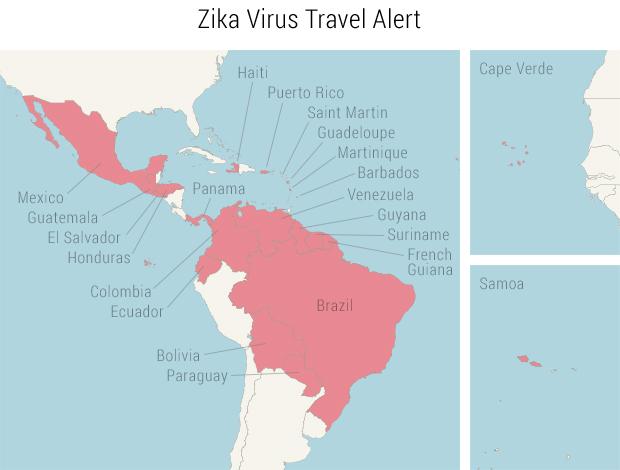Zika virus causes travel alerts, health concerns
March 17, 2016
On February 1st, the World Health Organization (WHO) declared the Zika virus a public health emergency. The virus started as isolated incidents in Brazil, transmitted through the bite of an infected Aedes species mosquito or sexually. In the U.S., there have been travel related cases, but no locally acquired cases. However, the starting point of the virus, Brazil, is concerning for many, as the 2016 Summer Olympics are set to take place in Rio. The CDC even said that it encourages pregnant women to “consider not going to the Olympics” and described the Zika outbreak in Brazil as dynamic.
The symptoms of Zika include fever, rash, joint pain and conjunctivitis (red eyes). However, most people do not get so sick from it that they have to go to the hospital, so many people do not even know that they have it. People rarely die of the Zika virus, but the real danger is in pregnant women. Many children of women with the Zika virus are born with microcephaly. Microcephaly causes the size of the head to be much smaller and can cause seizures, developmental delay, intellectual disability, hearing and vision problems and many other complications. Additionally, there has been some concern about the Zika virus causing Guillian-Barré Syndrome (GBS), which is when a person’s immune system damages his own nerve cells causing muscle weakness and sometimes paralysis. However, there is not a direct connection between them yet, but the Brazil Ministry of Health reported increased number of people infected with Zika virus who also have GBS. Currently, there is no vaccine prevention or medicine to cure the disease.

